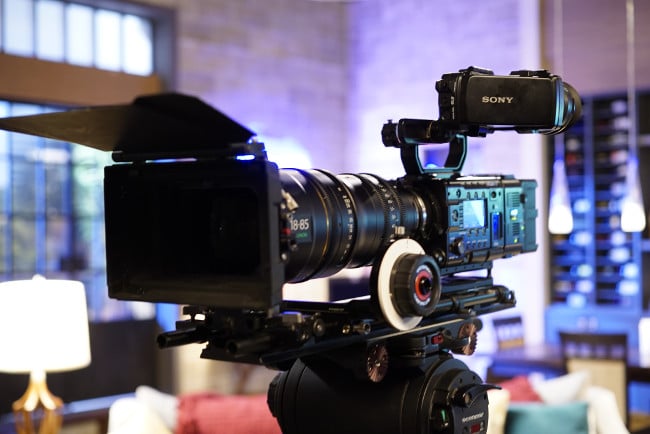
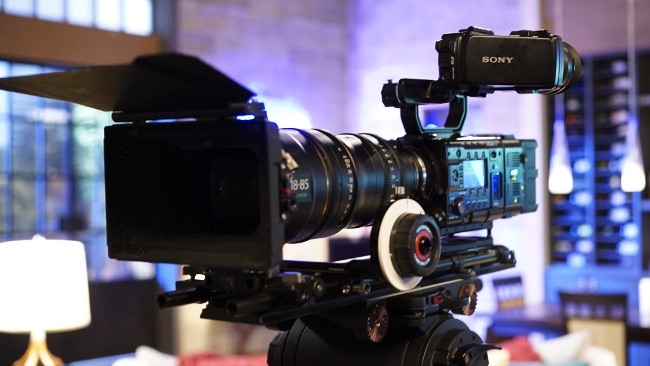
A tour of Sony's Digital Motion Picture Center revealed a useful, multi-faceted professional resource that highlights the company's strengths.
Recently, I was invited to take a tour of Sony's Digital Motion Picture Center (DMPC), located at Stage 7 of the Sony Pictures lot in Culver City. For those that may not be familiar with the DMPC, it first opened its doors back in 2012 and has since been Sony Professional's deft play at forging certain connections: with the company's Entertainment divisions, third parties that make products supporting Sony's and, most importantly, present and future users of Sony Professional's products.
Upon entering Stage 7, I was greeted by Keith Vidger, General Manager of the DMPC. The tour effectively began in the facilities 4K screening room, which is an intimate theater with plush, leather seating and a 25-foot screen.
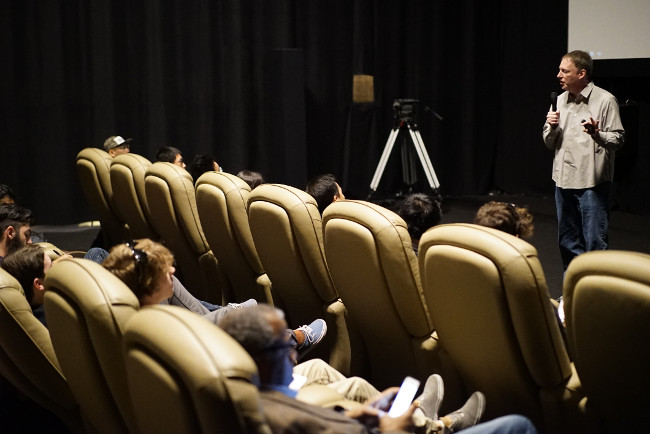
About Platform Change
Keith launched into the presentation that I'm sure he's done thousands of times, but thankfully he skipped past the 'what's 4K' portion, which is something we've covered at great length on these pages over the last few years. Instead, we chatted more generally about the DMPC and why it exists. The impetus for the DMPC was the need to educate users about platform changes as they take hold of the industry. If you take the tour, you will learn why we remember I Love Lucy and not Requiem for a Heavyweight, a point that poignantly illustrates the importance of platform change and future-proofing.
Back to the present, Keith went on to outline Sony's vision of 4K, of which resolution is just a part. For Sony, 'true 4K' requires not just resolution (at UHD or DCI standards), but high dynamic range and 'wide color' (referring to ITU-R BT.2020 standard for 4K/8K broadcasting) as well. This idea of 'true 4K' isn't new, but it's still interesting to consider that many current low-tier 4K displays and even cameras, by Sony's definition, aren't really '4K'. Sure, this could be regarded as a semantic argument, but it has substance; there really is a big difference between displays with just 4K resolution and those that also feature HDR and expanded color gamut.
Free for all
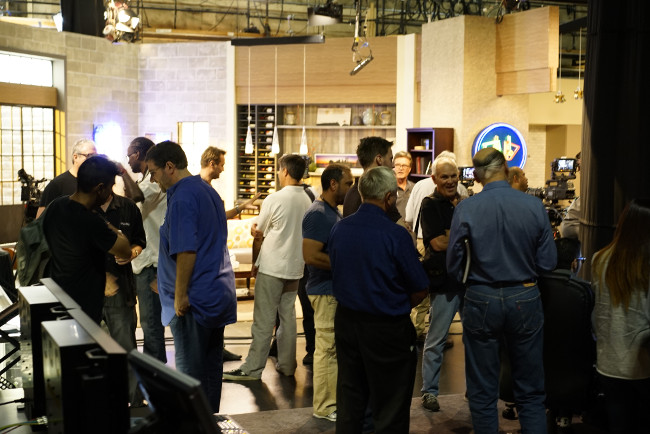
We transitioned into the studio space that adjoins the theater. The space housed the set of the short-lived TV comedy, Rake, starring Greg Kinnear. When that show was shelved, the DMPC procured the set and now it's a fixture and feature. The fact that entry is free of charge makes the DMPC an amazing resource for operators at all levels. The DMPC is free for anyone who would like to try out Sony's professional cameras and bring in their own cameras to test, even cameras made by competitors, so you can run your own personal camera shootouts. The staff simply requests that you contact them and schedule the visit in advance.
Third-parties featured
Another interesting aspect of the DMPC is its inclusion of products made by not only those companies supportive of Sony products, but competitor products as well. This is less prevalent on the camera side and more of a benefit for software and post. Instead of, say, relying on Sony Vegas, the DMPC provides access to the major editing and color grading suites, including Final Cut Pro, Premiere, Avid, Baselight and Resolve. This makes a lot of sense, as the DMPC prides itself as a resource for professionals and the offering reflects the workaday realities of pros. And it is also a confident stance for Sony, as it doesn't seem shy about comparing its products with that of other manufacturers or recognizing non-Sony products that pros rely upon.
Have class
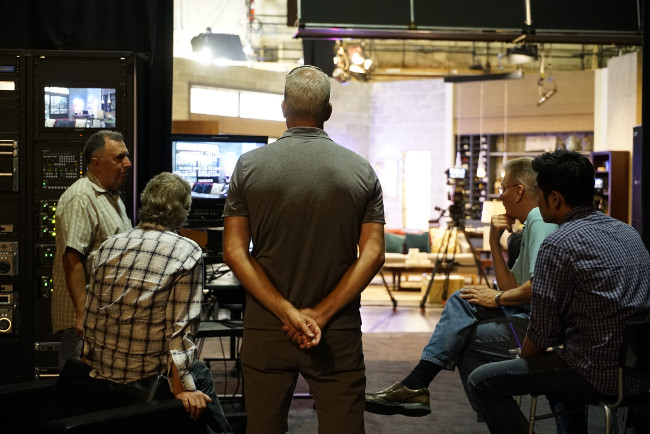
In addition to hands-on equipment testing, the DMPC also offers free classes to the community. One such program provides training to returning war vets who are interested in becoming production assistants, which is a nice bit of outreach.
At the conclusion of my tour, I thanked Keith for his time and the opportunity to speak with him about the DMPC. He invited me to check out their class in January on live 4K production, which will more than likely prompt a return visit and another report.
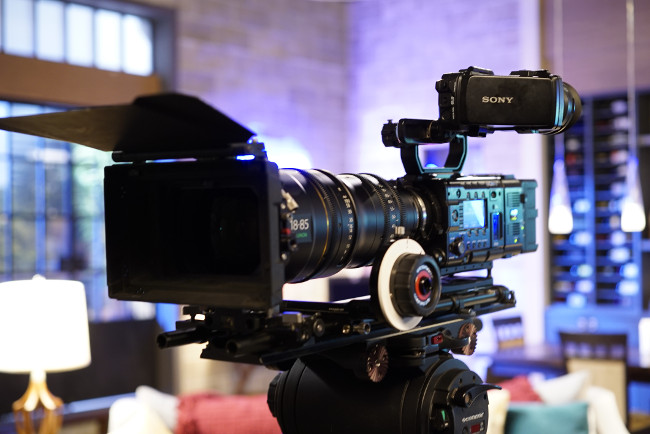
For more information about Sony's Digital Motion Picture Center, check out its FAQ page. For information on Sony's DMPC at Pinewood Studios (U.K.), go HERE.
[All photos courtesy of Sony]
Tags: Business


Comments